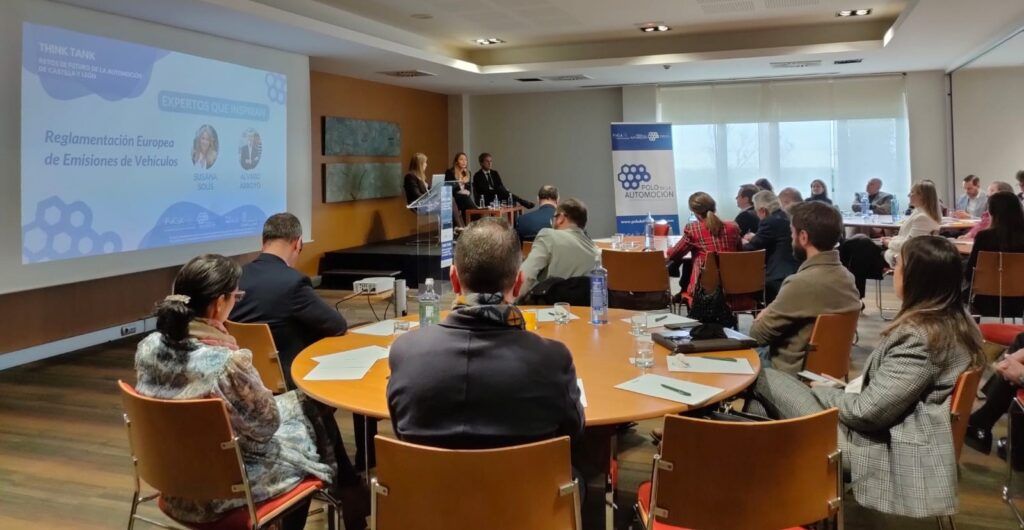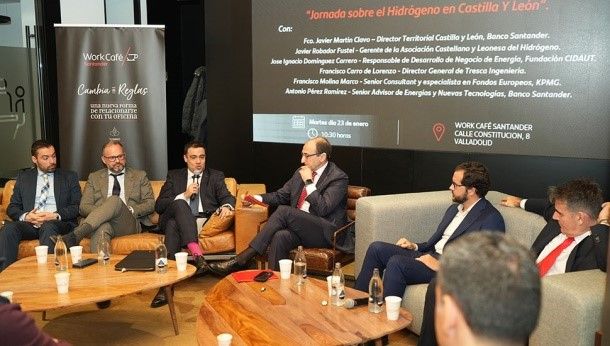Thanks to the knowledge, capabilities and experience that CIDAUT has in hydrogen technologies, we have participated in several conferences where we have contributed with our vision regarding the role of renewable hydrogen.
On January 23rd of this year, Banco Santander organized a conference on hydrogen in Castilla y León, in which CIDAUT was present with José Ignacio Domínguez. The event highlighted the opportunities that exist in the region to tackle projects related to renewable hydrogen, as it has the renewable resource, technological capacity and business initiatives to carry them out.
The renewable hydrogen economy involves a series of challenges and opportunities that the actors involved in the hydrogen value chain have to face.

FaCyL, the Automotive and Mobility Cluster of Castilla y León, analyzed the impact of European emissions regulations on heavy vehicles on Friday, January 26 in Valladolid. This took place within the framework of the first session of the 2024 Think Tank ‘Challenges for the Future of the Automotive Industry in Castilla y León’, an initiative promoted by Polo de la Automoción, the sectoral brand developed by the cluster.
This first session of Polo de la Automoción’s 2024 Think Tank also served for the sharing, through a collaborative dynamic in which the attendees participated, of the challenges faced by automotive and mobility companies in Castilla y León at this time. The new form of mobility and the underpinning of the sector as one of the references of the economy of Castilla y León were three of the issues highlighted in this strategic reflection of the automotive and mobility of the autonomous community.
The participation of CIDAUT, as a reference center in intelligent, connected and sustainable mobility, served to emphasize the decarbonizing role of renewable hydrogen, especially in heavy transport.
